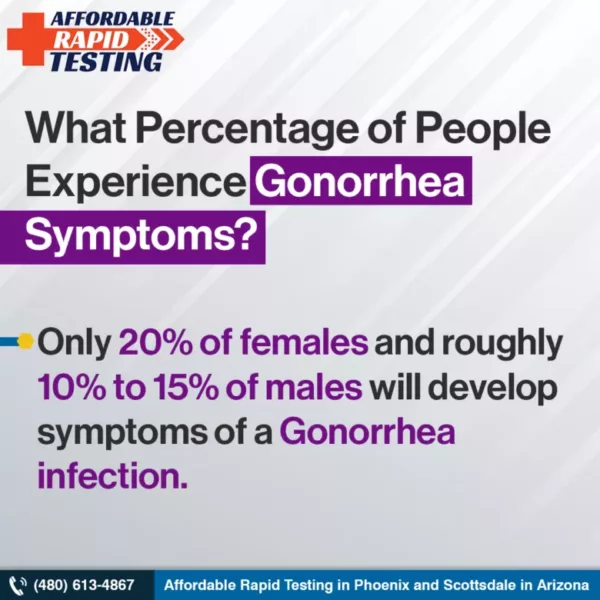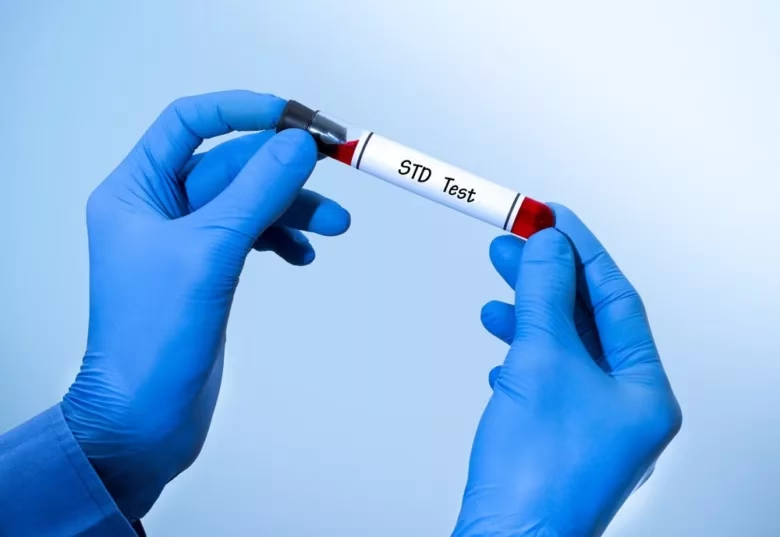For decades, Gonorrhea, a sexually transmitted infection (STI), has been a major public health concern. Gonorrhea can often be asymptomatic, particularly in women, and can be misdiagnosed as a bladder or vaginal infection.
However, if left untreated, it can have serious repercussions, including infertility and an increased risk of HIV transmission. Fortunately, Gonorrhea can be easily detected via standard STD testing procedures and is curable with the right therapy.
What is Gonorrhea?
The bacteria Neisseria Gonorrhoeae is responsible for Gonorrhea, a sexually transmitted infection. It can be detected in sexual fluids such as sperm and vaginal discharge. It is transmitted via vaginal, oral, or anal intercourse.
Furthermore, an infected mother can pass it on to her child after birth. The potential areas of Gonorrhea infection can be usually located in the cervix, urethra, rectum, and throat.
Common STD tests can easily detect Gonorrhea. Hence, it is imperative to undergo an STD testing procedure if you are undergoing symptoms.
Symptoms of Gonorrhea
Symptoms of Gonorrhea can impact numerous areas in your body but are frequently present in the genital tract. They might vary based on the place of infection and can affect both men and women differently.
Symptoms of Gonorrhea in men are:
- Painful urination
- Pus-like penile discharge
- Testicular pain or swelling
Symptoms of Gonorrhea in women include:
- Painful urination
- Unusual vaginal discharge
- Vaginal bleeding between menstrual cycles
The majority of women with Gonorrhea show no symptoms. Even if a woman does develop symptoms, they are usually minimal and might be misinterpreted as a bladder or vaginal infection.
Rectal infections can either cause no symptoms or cause symptoms in both men and women that can include:
- Discharge
- Soreness
- Anal itching and bleeding
- Uncomfortable bowel movements
STI testing for Gonorrhea is widely available and should be availed incase of symptoms.
Transmission of Gonorrhea
Gonorrhea is usually transmitted via:-
- Sexual contact with an infected partner’s penis, vagina, mouth, or anus regardless of ejaculation after intercouse.
- Mother to infant during childbirth.
People who have tested positive for Gonorrhea via STD testing and haveundergone treatment can be reinfected via sexual contact with an infected person infected. Gonorrhea can spread into the uterus or fallopian tubes and cause pelvic inflammatory illness in women. This STD can afflict anyone of any age, anatomy, or gender, although it’s more frequent among young adults.
Effective Treatment and Preventive Measures for Gonorrhea
Effective treatment for Gonorrhea typically involves the use of antibiotics. Here are some effective methods of treatment:-
- The Centers for Disease Control and Prevention (CDC) advises Gonorrhea treatment with a single dose of 500 mg intramuscular Ceftriaxone.
- When Ceftriaxone cannot be provided, such as for urogenital or rectal Gonorrhea, other regimens are available.
- In addition to Ceftriaxone, oral Azithromycin can be used for Chlamydia prevention.
- If a person is allergic to Cephalosporin antibiotics such as Ceftriaxone, alternate medications such as oral Gemifloxacin or injectable Gentamicin can be used.
- If you have been diagnosed with Gonorrhea, it is extremely important to take all drugs as prescribed, as some strains of the virus have developed a high level of drug resistance.
Prevention of Gonorrhea
Gonorrhea can be prevented by taking certain precautions. Here are some ways to prevent Gonorrhea:
- Abstinence: The best approach to avoid Gonorrhea is not to have sex.
- Condoms: Using a condom or dental dam during any sexual contact, including anal, oral, or vaginal intercourse, can lower the chance of transmission of Gonorrhea.
- Monogamy: Being in a long and a, monogamous relationship with a sexual partner who has undergone STD testing and is known to be uninfected can lower the chance of transmission of Gonorrhea.
- STD Testing: Periodic STD testing, especially if you have several sex partners, can help diagnose Gonorrhea early and prevent its spread. To avoid reinfection, both partners must undergo STD testing and treatment for Gonorrhea. Three months after treatment, further STI testing is required to establish infection clearance.

Public Health Importance
Here are some public health importance of Gonorrhea:
- Increasing incidence and treatment resistance: Gonorrhea is a fast-developing public health concern, with rising incidence and increasing medication resistance. CDC estimates that 1.6 million new Gonorrhea infections occur yearly in the United States, and nearly half of those infections are resistant to at least one drug.
- Consequences of untreated Gonorrhea: If left untreated, Gonorrhea can result in pelvic inflammatory disease, infertility, and other health concerns.
- Importance of prevention: Abstinence is a surefire way of preventing Gonorrhea. For many people, a more realistic objective is to limit the risk of contracting and spreading Gonorrhea. Prevention techniques include:-
- Always wearing a condom or dental dam during intercourse
- Not having sex with someone with an active infection or Gonorrhea symptoms
- Limiting sexual partners.
Public health agencies are crucial in controlling the spread of antibiotic-resistant Gonorrhea and preventing its repercussions.
- Importance of taking antibiotics as recommended: Taking medicines as prescribed is always vital, but it’s more crucial with Gonorrhea. Gonorrhea is treatable now, but it’s getting increasingly resistant to medications.
Some strains of Gonorrhea that have evolved a high level of antibiotic resistance are termed “super Gonorrhea.” To ensure that Gonorrhea stays curable, it’s more crucial than ever that everyone take treatments as recommended.
- Surveillance and awareness: Identifying novel strains of Gonorrhea is a critical public health problem. Public health agencies provide advisories to doctors and laboratories to promote awareness of novel strains and encourage the increasing use of laboratory culture testing for persons with symptoms of Gonorrhea to identify antibiotic resistance.
Choose Affordable Rapid Testing, Arizona for effective Gonorrhea testing.
To improve public health and raise awareness of Gonorrhea, it is essential to develop a holistic awareness of this STD. By being knowledgeable about the signs, the methods of transmission, and treatment options, you can safeguard yourself and your partner.
For cost-effective and quick STI testing in Arizona for Gonorrhea testing, you can choose Affordable Rapid Testing. They provide a wide range of STD testing services in Phoenix and Scottsdale, Arizona. To learn more about their services, you can check out their website.
They offer same-day STD testing, helping you to discover STDs before they cause major health complications.


